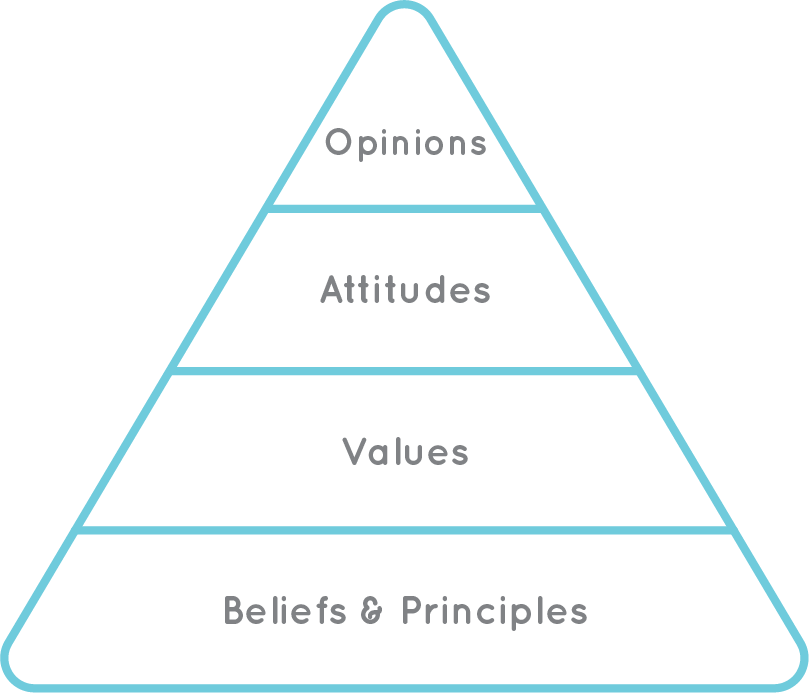
Culture and Spirituality in the Recovery Process
Text

What you will learn
Statement on the Cultural, Religious, and Spirituality Values of Accend Services
[A carefully crafted statement of inclusion and appreciation follows.]
Culture Broadly Defined
The Merriam Webster online definition of culture is as follows:
- "the customary beliefs, social forms, and material traits of a racial, religious, or social group
- "the characteristic features of everyday existence (such as diversions or a way of life) shared by people in a place or time
- "the set of shared attitudes, values, goals, and practices that characterizes an institution or organization
- "the set of values, conventions, or social practices associated with a particular field, activity, or societal characteristic
- "the integrated pattern of human knowledge, belief, and behavior that depends upon the capacity for learning and transmitting knowledge to succeeding generation"
We can take from these various definitions that culture is a broad term. Culture is an important factor to consider in treatment, but not just the experience of minority and immigrant groups. We all experience a variety of cultural influences and that these come from the communities of people with whom we affiliate. These communities are many, and might include people:
- who share our religious, spiritual or political beliefs or convictions;
- who share similar interests to our own;
- with whom we share values;
- with whom we have shared experience;
- of our same race or ethnicity;
- with whom we grew up in a region, city, or neighborhood;
- with whom we work (this is often referred to as organizational or corporate culture);
- who do similar work; and
- many other ways in which we connect and affiliate with others.
What Is Your Cultural Identity?
[Might this be a sidebar?]
When Culture Might Be More Important Than Anything Else
What is Cultural Competence?
In its working definition of recovery (found here), the Substance Abuse and Mental Health Services Adminstration defines cultural awareness and competence. Key text from that definition is as follows:
- "Cultural competence describes the ability of an individual or organization to interact effectively with people of different cultures. To produce positive change, practitioners must understand the cultural context of the community they serve, and have the willingness and skills to work within this context. This means drawing on community-based values, traditions, and customs, and working with knowledgeable people from the community to plan, implement, and evaluate prevention activities."
Specific Cultural Discussions
The Culture of Exclusion and Discrimination
The Culture of Poverty
Culture and Specific Racial and Ethnic Identities
[This cannot possibly be a comprehensive guide. It must only pay tribute to the fact that there are so many groups, cultures, identities we can imagine. The language here will be general. Resources, perhaps, might link to better information.]
Immigrants and Culture, and Acculturation
The Culture of Mental Illness
Your friend or relative is hospitalized for a heart condition, or cancer, or a serious accident. You, other friends and family members, coworkers and close acquaintences send flowers, cards, and best wishes. They call others who know them and encourage them to do the same. They mention it at the water cooler at the office.
How likely are these same people to act in the same way when someone is hospitalized for a mental health crisis? Less so, correct? Family members and friends are less likely to share with others, and when they do, it is in hushed terms. They are less likely to reach out with best wishes, flowers and cards. It is almost as if there is an atmosphere of stigma and shame associated with mental illness.
But should there be? Hardly! Consider this:
In training sessions for mental health services providers in Minnesota in the early 2000s, trainees were asked to raise their hands for affirmative answers to each of the following questions. What was surprizing were not the answers, but willingness or ability to answer truthfully.
| Question |
Response
|
| Raise your hand if you or a close family member has received medical treatment for a serious heart health condition. |
About 1-in-4 to 1-in-6 hands were raised. |
| Raise your hand if you or a close family member has received medical treatment for a cancer. |
About 1-in-4 to 1-in-6 hands were raised. |
| Raise your hand if you or a close family member has received medical treatment for a serious accidental injury. |
About 1-in-4 to 1-in-6 hands were raised. |
| Raise your hand if you or a close family member has received medical treatment for a sexually-transmitted disease. |
Very few hands were raised. |
| Raise your hand if you or a close family member has received medical treatment for a mental illness. |
Roughly the same number of hands raised as to the question regarding sexually-transmitted disease. |
What is important to understand is the the prevalance (or frequency of occurrence) of each of these conditions is roughly equal. Statistics would indicate that, in any randomly-selected group, roughly 1-in-4 to 1-in-6 hands should have been raised for each question. But people were equally less likely to either know or admit that they or a close family member had been treated for mental illess as for sexually-transmitted disease.
Understandably, among strangers and coworkers, people are not willing to disclose that they themselves or a close family member have been treated for a sexually-transmitted disease. It does not even seem an appropriate question to ask in such a forum. But why the same reaction for mental illness?
What does this tell us? It is telling evidence that, even among mental health services providers, the culture of mental illness has, at its core, stigma and shame. People with mental illness are marginalized, blamed, and shamed. After all, their behavior is the visible symptom, and it's not always pretty.
[Wrap this up, you're getting preachy]
The Values Hierarchy

[This graphic and concept may or may not belong in this chapter. I am still exploring.-mc]
Consider the image on the left. This Values Hierarchy explores how we form opinions based on our attitudes, how our attitudes come from our values, and how our values are based in our underlying beliefs and principles.
A change at any level in the hierarchy requires at least a small change in the level below it. Our opinions are the fastest and most likely to change, and often change with a change in our attitudes. Attitudes shift with our values. Our values are rooted in our beliefs and principles, which change or evolve slowly, over time, for those of us who are open to learning and personal growth.
All of these are influenced by our culture and cultural experiences in the communities in which we circulate.
Consider the following when you are faced with a particularly vexing problem:
| Opinion: |
I can do this... learn this... solve this... figure this out |
| Attitude: |
Hard work will lead to success |
| Value: |
I value lifelong personal growth and learning |
| Belief/Principle: |
All people are capable of growth and self-improvement |
Or this:
| Opinion: |
This is too hard... unfair |
| Attitude: |
I should not be asked to do this |
| Value: |
It's not fair to ask of me more than I can reasonably do. |
| Belief/Principle: |
People have limits and should not be forced to do more than they what they are capable of doing. |
Which of the above best fits your first reaction?
[Figure out where you are going with this and get on with it.]
Spirituality Broadly Defined
Religiosity Versus Spirituality
Are You a Spiritual Person?
How Can Spirituality Be Healing Factor in the Recovery Journey?
How Does Spirituality Contribute to Recovery?
What's Your Role in This?
Can You Effectively Integrate Spirituality Into Treatment?
How Do We Assess and Integrate Culture and Sprituality Into Treatment?
Functional Assessment
Integration in the Treatment Plan
Resources for Culture and Spirituality
>Resource One
Feedback or Questions about this Chapter
This guide is a living document. We want to improve it with your help. Do you have questions? Found a typo? Find yourself wanting more information? Please send us your thoughts about anything in this chapter by tapping on the link below.



